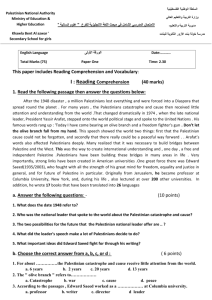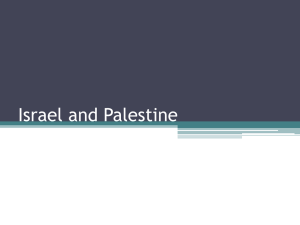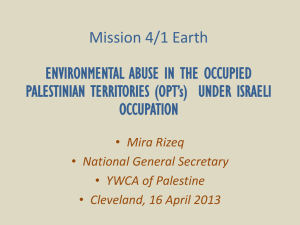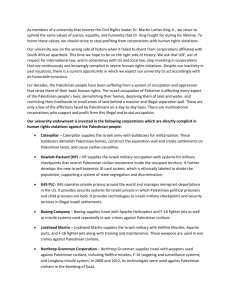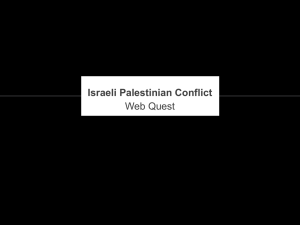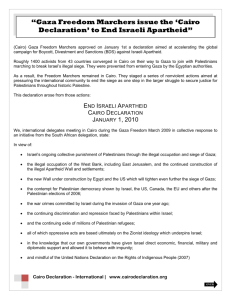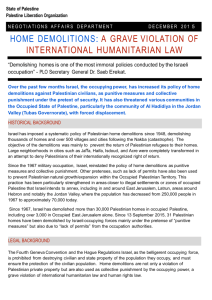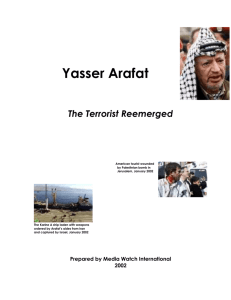Arafat`s War
advertisement
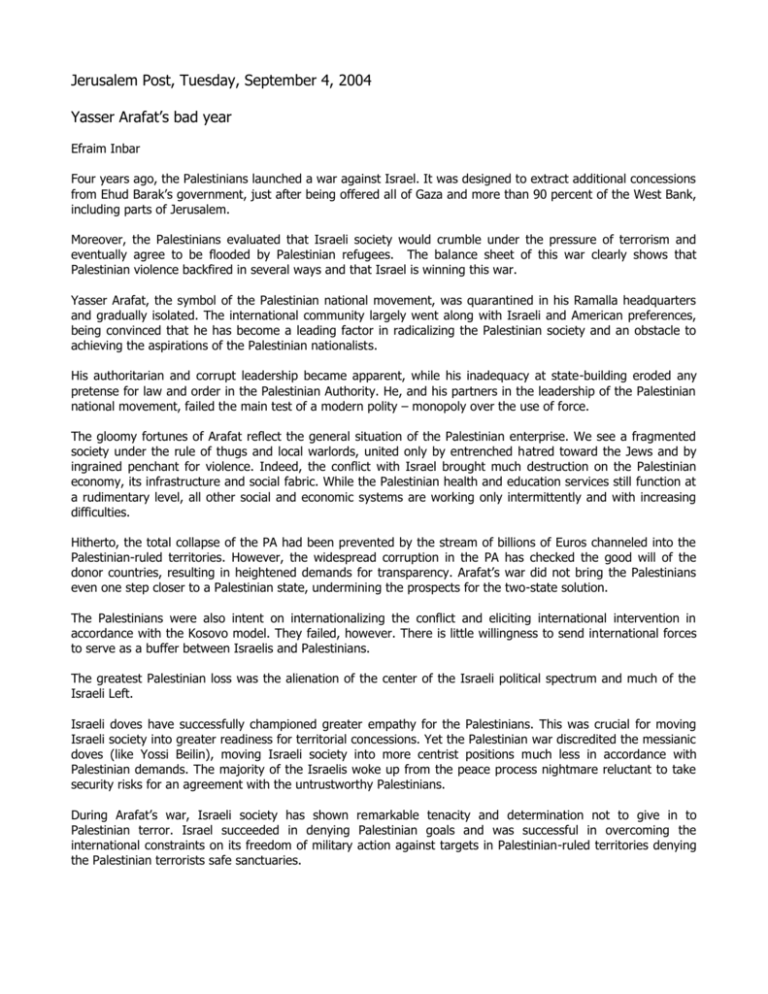
Jerusalem Post, Tuesday, September 4, 2004 Yasser Arafat’s bad year Efraim Inbar Four years ago, the Palestinians launched a war against Israel. It was designed to extract additional concessions from Ehud Barak’s government, just after being offered all of Gaza and more than 90 percent of the West Bank, including parts of Jerusalem. Moreover, the Palestinians evaluated that Israeli society would crumble under the pressure of terrorism and eventually agree to be flooded by Palestinian refugees. The balance sheet of this war clearly shows that Palestinian violence backfired in several ways and that Israel is winning this war. Yasser Arafat, the symbol of the Palestinian national movement, was quarantined in his Ramalla headquarters and gradually isolated. The international community largely went along with Israeli and American preferences, being convinced that he has become a leading factor in radicalizing the Palestinian society and an obstacle to achieving the aspirations of the Palestinian nationalists. His authoritarian and corrupt leadership became apparent, while his inadequacy at state-building eroded any pretense for law and order in the Palestinian Authority. He, and his partners in the leadership of the Palestinian national movement, failed the main test of a modern polity – monopoly over the use of force. The gloomy fortunes of Arafat reflect the general situation of the Palestinian enterprise. We see a fragmented society under the rule of thugs and local warlords, united only by entrenched hatred toward the Jews and by ingrained penchant for violence. Indeed, the conflict with Israel brought much destruction on the Palestinian economy, its infrastructure and social fabric. While the Palestinian health and education services still function at a rudimentary level, all other social and economic systems are working only intermittently and with increasing difficulties. Hitherto, the total collapse of the PA had been prevented by the stream of billions of Euros channeled into the Palestinian-ruled territories. However, the widespread corruption in the PA has checked the good will of the donor countries, resulting in heightened demands for transparency. Arafat’s war did not bring the Palestinians even one step closer to a Palestinian state, undermining the prospects for the two-state solution. The Palestinians were also intent on internationalizing the conflict and eliciting international intervention in accordance with the Kosovo model. They failed, however. There is little willingness to send international forces to serve as a buffer between Israelis and Palestinians. The greatest Palestinian loss was the alienation of the center of the Israeli political spectrum and much of the Israeli Left. Israeli doves have successfully championed greater empathy for the Palestinians. This was crucial for moving Israeli society into greater readiness for territorial concessions. Yet the Palestinian war discredited the messianic doves (like Yossi Beilin), moving Israeli society into more centrist positions much less in accordance with Palestinian demands. The majority of the Israelis woke up from the peace process nightmare reluctant to take security risks for an agreement with the untrustworthy Palestinians. During Arafat’s war, Israeli society has shown remarkable tenacity and determination not to give in to Palestinian terror. Israel succeeded in denying Palestinian goals and was successful in overcoming the international constraints on its freedom of military action against targets in Palestinian-ruled territories denying the Palestinian terrorists safe sanctuaries. Since Operation Defensive Shield (March-April 2002), the terrorists have been on the run, leading to a decline in the number of Israeli casualties. Israel’s record in this respect, the foiling of over 90% of suicide bomber attacks, is remarkable. Undoubtedly, 9/11 was a turning point in the Israeli-Palestinian war. This event sensitized much of the world, particularly the US, to the Israeli dilemmas in fighting terrorism. Nowadays, there is greater understanding for the Israeli counter-terror measures. In contrast, the Palestinian leadership failed to change gear by distancing the Palestinian struggle from terror. The proposed unilateral disengagement is a Palestinian achievement because Israel does not get anything in return for removing settlements and for withdrawing from Gaza. Nevertheless, in light of Israel’s traditional readiness to accept partition of the Land of Israel and the general consensus about the need to leave Gaza, the planned withdrawal is not a Palestinian victory. If implemented, it will not drastically alter the basic geo-strategic equation. Even a similar limited withdrawal in the West Bank will not be an Israeli defeat as long as Israel continues to have freedom of action in Palestinian areas. Arafat’s war will continue for a while with oscillating levels of violence because of the still existent energies among the Palestinians. Yet, the Palestinian experiment has probably ended in failure. The Palestinians, just like the Somalis, have proven that state building is not a universal talent. While self-determination is held by many to be a basic right, it is not self-evident that every ethnic group has the political maturity to exercise it. Indeed, the international community increasingly views the Palestinians as unable to govern themselves successfully. Even their supporters are airing proposals for an international trusteeship – an unlikely scenario – to help the Palestinians in their transition to statehood. Yet, the bitter truth is that the two-states concept is not suitable for stabilizing the situation. After four years of war we need to search for another concept.


